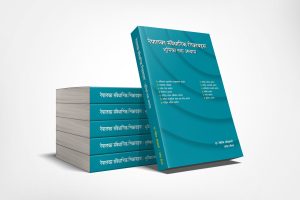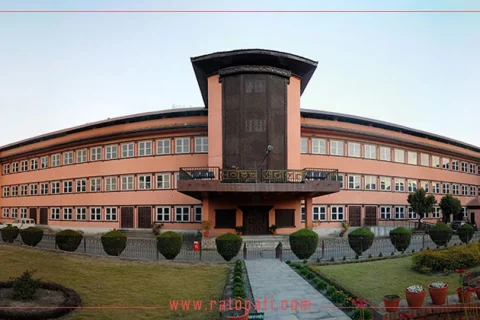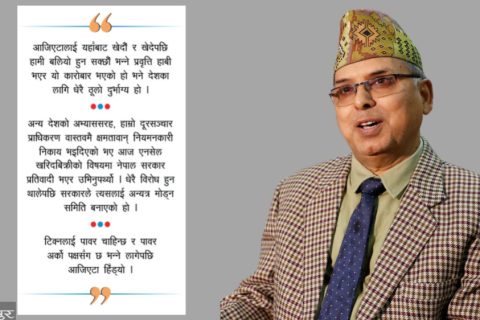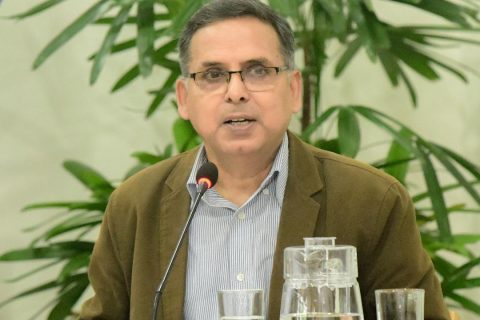Lets start with the definition of the term ‘discrimination.’ Equality is the condition of possessing substantially the same rights, privileges and immunities and being liable to substantially the same duties. A.V. Dicey “equality before law” as one of the important components of the rule of law.
We can recall the provisions of the Muluki Ain, 1910, Constitutional Act of 2004, Interim Government Act, 2007, Constitution of Kingdom of Nepal, 2015, Constitution of Nepal, 2019, Muluki Ain, 2020, Constitution of Kingdom of Nepal, 2047, Interim Constitution of Nepal, 2063 and Caste Based Discrimination and Untouchability (Offence and Punishment) Act, 2068 and the relevant provisions therein.
There is also a report of the Law Commission and the landmark judgments delivered by the Supreme Court of Nepal. The Supreme Court judgment on the rights of LGBTI is already famous. There are some international conventions and treaties such as Universal Declaration of Human Rights, 1948, Convention on the Prevention and Punishment of the Crime of Genocide, 1948, International Covenant on Civil and Political Rights, 1966, International Covenant on Economic, Social and Cultural Rights, 1965 and Convention on the Elimination of All Forms of Racial Discrimination, 1965. They have their impact in our society and local laws.
In the context of the offenses regarding discrimination, Section 37 should also include acid attacks as in recent history we have witnessed many racial and gender attacks by use of acid. Further, the existing laws regarding acid attack on a person especially on women is not clear. The law is silent about the course of action regarding acid attack and many culprits walk free due to leaky provisions in the existing laws. Further, the term used in Section 117 should be avoided as it is degrading.
Section 155 sanctions discrimination if such practices have been carried out as part of one’s culture or rituals. A new provision should be added wherein it must stipulate that any person in propagation of culture or ritual who promotes gender, caste or social discrimination shall be punishable under the law. Further, the expression ‘caste Discrimination’ should be replaced by “gender, caste, cultural and class discrimination” in the explanation of Section 163.
Any sexual intercourse with a minor or without the consent of the partner should be punished for rape. The wording here implies that only females can be raped and excludes third gender or males. The wordings of the provisions must be refined to include third gender and males too.
The present Bill is silent on whether the discriminatory act in public place is punishable or any discriminatory act either in public or private place is punishable.
One can argue that the Bill punishes only discriminatory acts in public places. This means that discrimination in our society may never end. It is clear that LGBTI are neglected in the Bill. This oversight is against the judgment of Supreme Court of Nepal which has given all LGBTI equal protection and status in our society.
Racial and gender discrimination are embedded in subconscious mind. It will require additional support from social and educational sector. Educating children and mass about all forms of discrimination and sensitizing society needs to be done with top priority. Law alone cannot eliminate all forms of discrimination.
The present Bill is a good start to eliminate discrimination. However, the Bill needs serious revision to include various forms of discrimination. The victim of discrimination must not be narrowly construed as people from all walks of life may fall victim of discrimination. The courts should be empowered to grant interim relief in the form of monetary relief as the cases in Nepal can prolong for years.
Perhaps one should make a point here that dalits, especial dalit women, have to undergo wide range of discrimination. Many discriminatory actions have been suppressed or discouraged by the people in affluent class of people. Dalit people do not have the resources to come up front and report discriminatory acts. If some stray discriminatory acts are reported the victims are further harassed by the concerned people for reporting the act. The present law must provide relief and protection to victims. Until and unless the law succeeds to protect and deliver speedy justice elimination of all forms of discrimination is not possible.







